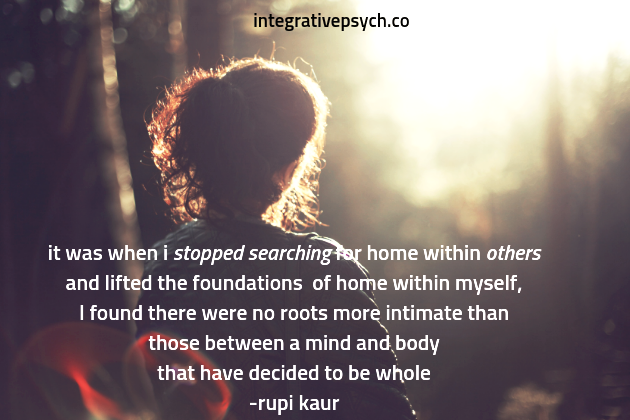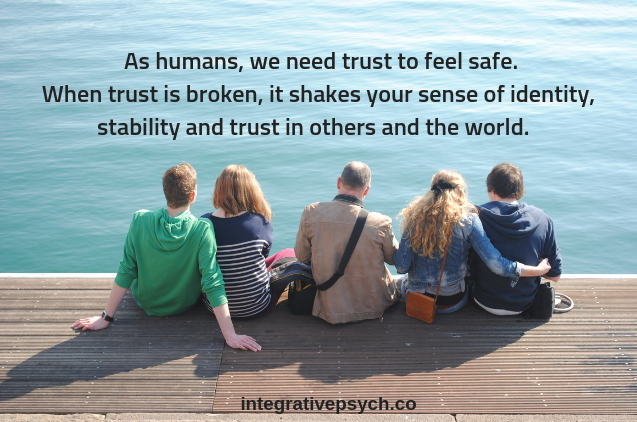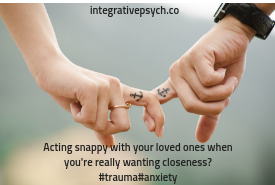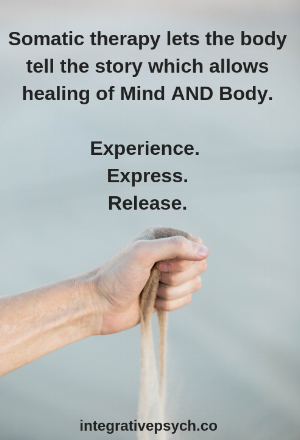traumatic anxiety explained in Long Island
Traumatic Anxiety Explained in NYC and Long Island
Trauma.
When you see that word, what comes to mind?
When you say “I have been through trauma”, most people think that you’re referring to the fact that you were terribly abused, beaten or neglected. When you use the word PTSD Post Traumatic Stress Disorder, most people think of the faces on the cover of a magazine of people who survived terrible natural disasters, wars or were sexually violated.
Do you know that many people who have anxiety or ptsd symptoms experienced events where their bodies and minds sensed danger and interpreted it as traumatic?
What does it mean to interpret an event as traumatic?
Trauma is less about the specifics of the event, but rather how the person’s mind and body perceived and experienced the events. If your body felt shaken and scared and your mind sent the message “I’m in danger”, “I’m not ok” “I won’t survive this”, it’s likely you experienced the event as traumatic.
Common traumas I see in adults are social traumas, also known as interpersonal traumas.
The inside scoop on Interpersonal Traumas.
Interpersonal traumas refer to an experience where you were hurt in a social situation. An experience where your trust was violated, you were publicly embarrassed or your boundaries were ignored and stepped on.
It’s especially traumatic when the people who were supposed to care and protect you (loved ones, partners, best friends, caregivers, parents or authority figures) let you down, or even harmed you.
As humans, we need trust to feel safe, and so when your trust is broken, your world can come shattering down. If you’ve been harmed by people who were supposed to support you, you may have a hard time feeling safe in your adult relationships now.
Interpersonal Traumas can feel equally or more upsetting than a one time “traumatic incident” because it shakes your sense of identity, stability and trust in self and others.
Secondary Traumatization
You may not have been the person who experienced the trauma first-hand. I you watched someone being hurt, neglected, abused or violated, you may also have trauma symptoms. why? Because your brain and body were calculating the experiences and may have digested the events in a traumatic way, you’re left feeling confused and scared. This is especially true if you felt unable to protect or save the person who was being hurt.
Another kind of trauma: Traumatic Grief.
If there was a sudden death in the family, or if you lost a loved one, it’s normal to experience traumatic grief. Traumatic grief is when the lasting emotional effects of the loss stays with you, and causes emotional turmoil, stress and sadness. For example: If you lost your mom when you were eleven and she was 37, you may have felt a heaviness for a while, and that’s normal. What’s also likely is when you reach milestones in your life that remind you of the loss, you’ll re-experience the grief. For example, when you have your first child, when you get married, or when you turn 37. All these milestones can kick up unconscious thoughts and feelings.
7 Common symptoms of post traumatic stress:
Being irritable and restless
Feeling fearful and anxious
Experiencing panic and panic attacks
Having vivid dreams
Difficulty concentrating
Mood swings
Getting impatient and snappy with your partner, loved ones and/or children
Ever have an interaction in your adult life and you have a reaction that doesn’t seem proportionate to the interaction?
Say you’re at work and there’s one co-worker who gets on your nerves and you have no clue as to why. But you notice that before she talks, her lips gently curve upwards as if she is smiling. Now, you may remember that a bully in your high school would smirk before she would blurt out a poisonous remark. Though that was 30 years ago, when your body sees something that reminds you of that interaction, it sends off “danger signals”.
Your danger signals are your irritation, restlessness and anger. This example explains how an experience from your past is held on a mind and body level, and though you may know that you’re now 45, your body goes right back to danger zone, in attempt to protect you.
Have nagging anxiety? Get curious..it may be related to trauma.
Post traumatic stress disorder is classified as an anxiety disorder because panic and anxiety are the primary symptoms of ptsd. If you’ve tried to talk yourself down from your anxiety but have experienced no relief, you’re not crazy, and it’s not your fault! Trauma gets encoded on a mind AND body level, so if you’re trying to “get over” your anxiety, but your body is still holding on, your anxiety may not budge.
I can get how frustrating that can feel! The good news is that there are specific scientific-based therapies that help with these kinds of issues. Some of the therapies that go deeper than talk therapy are:
EMDR: Eye Movement Desensitization and Reprocessing.
EMDR is a therapy that lights up the right and left part of your brain, so that you can access and re-process traumatic or stressful experiences. In the safety of the therapy room, and helping you dip into the past, we help you shift the memories or emotions from the past so that your body can let go of some of the anxiety and discomfort its been holding
Somatic Sensorimotor Psychotherapy:
Somatic therapies help your body experience the events when retelling the story from the past. We slow down the narrative and listen in for cues from the body such as muscle tension, a shifting in your breathing, muscle tone and facial expressions. Somatic therapies help the body communicate the trauma that has been held, and as we find ways for the tension to be released from the body, the mind can shift to more helpful thinking.
For example: If you walk around hunched because you feel like the world is on your shoulders and you’ve disowned any sense of power, we may work with that body sensation that’s related to feeling “powerless” so that over time your mind can let that go and rather embrace facing the world and feeling the power you possess innately.
Get back on the dance floor of your life
As a trauma specialist who specifically treats interpersonal trauma, I have seen clients experience shifts in their anxiety when using these therapy methods that help us reach the core of discomfort.
The goal of trauma healing? Learning to feel safe in your body.
When your body can properly “digest” past experiences and let go of the ongoing anxiety, you can feel more comfortable in your own skin. You learn where your anxiety is coming from, why you have anxiety, and know what to do when you feel jittery. Engaging in trauma informed therapies also helps reduce the intensity of the anxiety so that you can move on with your life with more ease and joy!
Live in the Five Towns, Nassau County or anywhere in Long Island, NY and want to begin your trauma and anxiety healing?
Reach out for your free 15 minute consult here.







